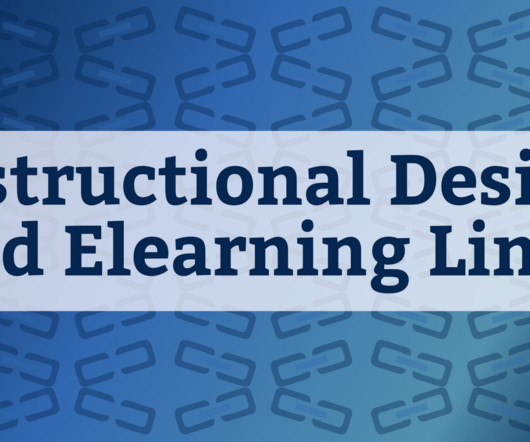Learning and Cognitive Load
B Online Learning
FEBRUARY 25, 2015
In a previous post, I looked at the fundamentals of cognitive load theory. Adult Learning Principles eLearning Design eLearning Development eLearning Strategy adult learning principles design elearning eLearning content eLearning course design eLearning strategy instructional design online learning rapid eLearning'


















































Let's personalize your content